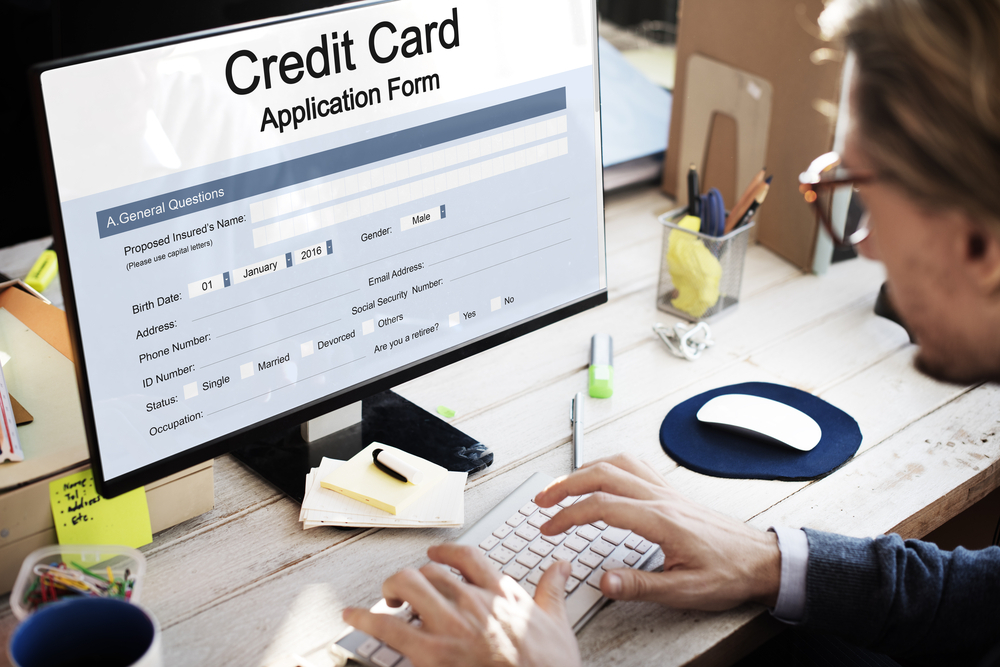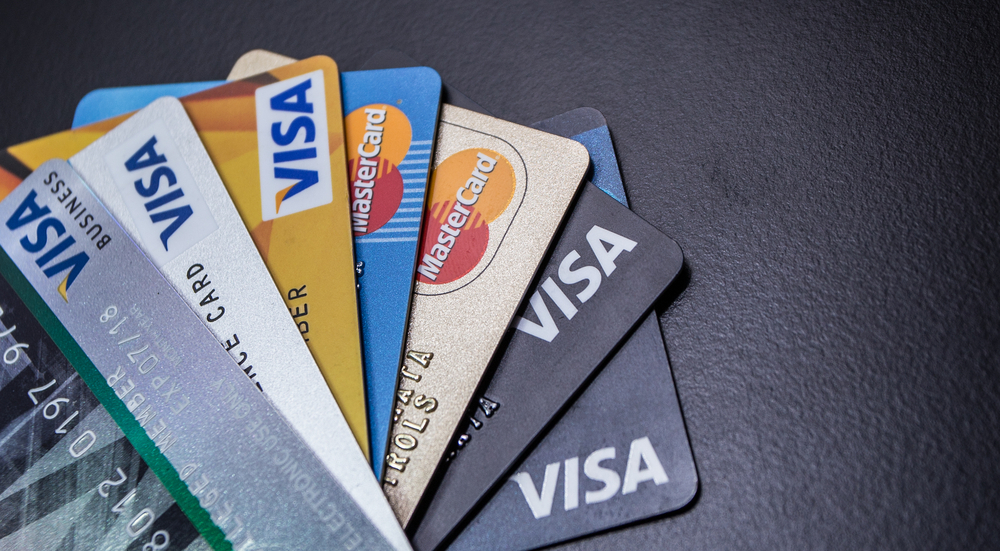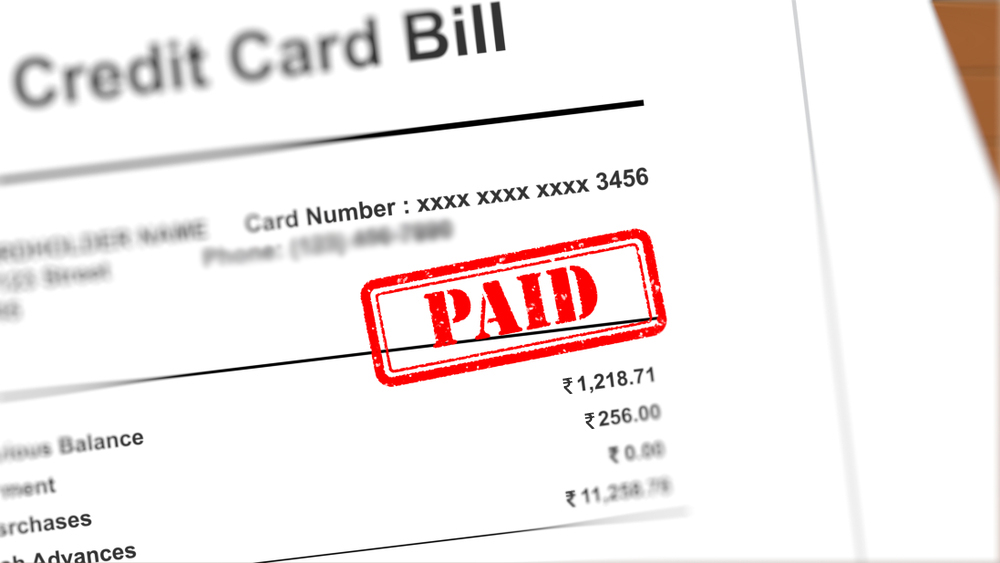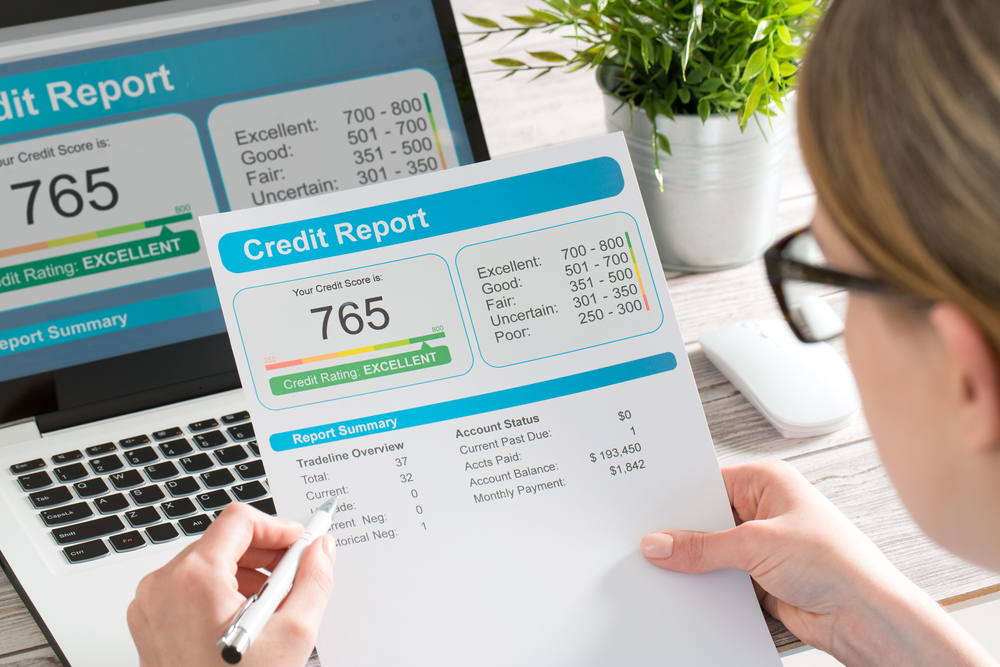What is a Credit card
A Bank or financial Company issues a rectangular piece of plastic or metal, better known as ‘The Credit Card’ to the applicant, that allows cardholders to borrow funds using which they can pay for goods and services from sellers that agree to accept the card for the amount due to them.
Credit Card issuers impose the conditions under which a cardholder will have to pay back the borrowed money along with the interest amount and any additional charges, if applicable, within a given period or before the billing date.
Credit Cards are the easiest and convenient way to pay for purchases. Credit cards are universally accepted due to their ubiquitous nature. Another name for the Credit Card is plastic money.

To explain in simple words, having a credit card is like having a short-term advance. When you make an application for a credit card, the Bank or the financial institution issues you one, after processing your application. On each issued Credit Card, there comes a credit limit set to it. Credit limit means the limit up to which you can spend the money.
Each month, the credit card holder will get a statement from the concerned Bank, giving him a list of all purchases he has made from his account during the period. The statement further includes the total amount needed to pay along with the minimum amount due. The minimum amount of money here refers to the money, a cardholder is supposed to pay to the bank or the financial institution, failure of which, makes him delinquent. The statement further continues to mention many other relevant details such as the date before which the payment is required to be made by the cardholder. The statement shows any payments made by the cardholder to their credit card account in the last month. The statement contains any payments, interest, or any other charges carried forward from the previous billing, without paying the amount in full and further interest on those charges.
Sometimes, the date of purchase and the date of payment is different. Now, if you happen to be the kind of person that pays your credit card bill in full, without carrying anything forward in the next billing cycle, you will be discharged from paying additional interest. If you don’t choose to make the full payment of the amount that is due or pay only that amount which is minimum due and carry the rest of the amount to the next month, then you will be charged with the interest as prescribed by the card issuer.

Annual charges applicable to the credit cards are dependent upon the type of card you are using. Some credit cards are not charged in the first year but subsequent years. Whereas most banks and financial institutions charge a certain amount, and cardholders are billed annually.
Any payment delayed beyond the date mentioned in the statement or the credit card bill will incur late payment charges. When cardholders carry forward a billed charge without paying it fully, they will be charged interest on delayed payments.
Some cards help you earn back some of the money you spend on it. This can be in the form of reward points that add up and are available for you to redeem for different things, that include air miles, actual cashback, vouchers, etc. Cardholders get to use these points for buying several products that are mentioned in the rewards catalog, and different vouchers usable at different places.
Is Having Multiple Credit cards Good?

Having multiple credit cards has both advantages and shortcomings. Whether having multiple credit cards proves to be a boon or a curse completely depends upon how smartly does a credit cardholder uses the same. Juggling with many credit cards smartly is no less than a challenge for an individual. Most are tempted to apply for many credit cards because of the exclusive benefits and special features they have to offer. For instance, a travel credit card suits the purpose of spending on travel-related expenditure and may give maximum rewards only if it is used for travel purposes. People apply to different credit cards depending upon their use for different spending reasons. No wonder some individuals need more than one card. That is because each type of credit card comes with unique benefits.
Even though an applicant is willing to apply for several credit cards at the same time, each application is reviewed and taken into account separately. Wise ones choose to exercise caution and avoid applying for many credit cards at a time, as managing all different credit cards at a time can get a little challenging.
Banks make sure to check the track record of the applicant before approving multiple credit cards. Those with a good credit score and excellent track record can easily apply for additional credit cards.

There is confusion regarding how many credit cards can one have. This entirely depends upon the individual, as an individual may hold a diverse range of credit cards that differ from each other in terms of benefits and uses. For example, there is a travel credit and another one is a rewards card. Now travel credit is used exclusively for travel-related expenditure and rewards cards can be used for regular purchases. The travel card is certainly not appropriate for regular purchases made in general stores, supermarkets, etc. Similarly, the regular card is not ideal to use for travel-related expenses. In this case, application for both cards seems practical as the holder can reap the benefits of each card during their respective use. This is beneficial to the cardholder as using ‘Regular Credit Card’ will fetch him reward points and using ‘Travel Card’ will make it possible to enjoy travel-related perks.
In a nutshell, if you happen to be the kind of person who can manage one card efficiently, you may choose to stick to one rather than applying for many cards unnecessarily. Although, having two to three credit cards, with different benefits and exclusive features, is not bad. Having one card for travel, one for regular use, and one for online shopping is not too much. For those running their own business, it would be practical to have a credit card for their personal use and another credit card that can be strictly used for business. But applying for more than three cards is not generally recommended unless one knows how to manage them all with wisdom and prudence. As long as an individual is making prompt payments regularly on all the credit cards possessed by him, it will not affect or have any negative impact on accessing other forms of credit.
What is a Good Credit Mix

A term less known to the customers is ‘Credit Mix’. Credit mix is one of the most significant factors in the credit report that accounts for 10% of your credit score report. A credit mix is a comprehensive report of a consumer that shows the kind of credit they have and how successfully they have been maintaining the same so far. It helps the lender a great deal in determining whether the loan application of the consumer should get approved or not. Credit mix also helps the lender determine whether the loan applicant can repay the borrowed amount in the provided time at the rate of interest charged.
A credit mix is a combination of different types of credit accounts like loans, credit cards, mortgages, etc put together. It is not necessary to have all of this line of credit in the account of the applicant.
Payday loans and Title loans do not form a part of the ‘Credit Mix’.
Normally, there are two types of credit in your credit mix.
- Installment Credit
- Revolving credit
Installment Credit:
In Instalment Credit, there is a predetermined amount to be paid on monthly basis on a predetermined date within a stipulated time by your bank or the Financial Institution. You are no longer allowed to use this credit once it is paid off. Having a good credit mix is always desirable as it helps in boosting your credit score if presumed that all payments are made on time.
Installment credit involves student loans, mortgages, home loans, personal loans, auto loans, etc.
Revolving Credit:

Revolving credit can be used over and over again to the extent of your credit line allows you to use it. You must make sure that your payments are on time and are not allowed to use more than your available limit. The best example of ‘Revolving Credit’ is a credit card. A credit card sets a limit you are allowed to use. Once you make the payment of credit used so far, your original limit will be available for you to use again.
A good credit mix often refers to a blend of both installment and revolving credit. For instance, you have a personal loan, a credit card, and an auto loan in your name and you are making your monthly fixed payments on your installments credit. You choose to utilize the credit card under the stipulated ratio of utilization, which turns out to be 30%. You may use more than that but you refrain from doing so as it increases the risk factor for your profile in the future.
Now, if you are using a credit card, it should be used appropriately and if payments have been made on time, it can boost the credit score. This is the way to assure the lender how well you have been managing your credit accounts. This is how you build trust in the eye of the lender. Lenders report good credit behavior to credit agencies, which, in turn, helps the credit agency in analyzing the way you handle your credit accounts in detail.
You must be alert and keep a check on your credit to keep a track of your credit report. It is advised to have a basic knowledge about what your credit score is before applying for any kind of loan. You can always check credit Score for free. This will enable you to keep a track of your records.
How to Manage Multiple Credit cards?

Here are some of the ways that can help you with managing multiple credit cards.
- Pay off all your dues on credit card bills in full at the end of the billing cycle and don’t carry a balance. You must pay the credit card bill with higher interest first. This is a very wise move as it helps you in saving money on interest. If you choose to close a credit card with a lower balance, you can get great help in closing the credit card account faster.
- Owning multiple credit cards gives you access to various offers and benefits. Multiple credit cards mean multiple credit card bills too at the end of the billing cycle. It can be difficult at times to remember to keep a track of the due dates of several bills and pay them. To tackle this, you may set a reminder on your cellphone or mark the date on the calendar. This way, you don’t miss out on payments and it doesn’t impact your credit score negatively.
- Often the credit cards which have annual fees, tend to offer more benefits, higher credit limits, and other various offers too. However, they charge high annual fees for the same. But if carefully search through all options available, many credit cards do not charge annual fees and also offer reasonable rewards. A well-informed decision is always based on facts. You must study the policies of many banks and credit card companies prevalent in the market before making a decision.
- There is a different range of offers and benefits available on many credit cards. However, many credit cards are curated in such a way that when used for a particular purchase, provide increased benefits. It is prudent to choose a card that offers you a wide range of offers with more rewards when it comes to certain types of purchases. If you need a credit card for shopping online or retail shopping, you may opt for a credit card that gives you increased benefits for the same. When handling multiple cards, you must prioritize key points and benefits each credit card offers you. This way, you may be able to save money even when you are on a shopping spree and earn rewards with each transaction you make.
Does Getting Multiple Credit cards hurt your score?

Owning several cards you carry is not the sole reason behind impacting your credit score. However, you must avoid applying for several new credit cards at one time. Over some time, if managed diligently and effectively, multiple cards and a higher credit limit can help you improve your credit scores.
Having multiple credit cards can either be a boon or a curse depending upon how wisely you use them. Whether it can help or hurt your credit score is dependent upon whether you keep your balances low and always pay bills on time.
Having multiple credit cards is beneficial if you use your cards to pay for purchases for which you pay off right away, the reason being, more credit cards means a higher combined limit.
Having more credit cards is not problematic if you keep you are not a reckless spender. The temptation of spending more than you can afford to pay off each month might lead you to trouble as you may have to carry forward the balance from month to month. This damages your credit score.
Owning multiple credit cards makes it difficult to keep track of due dates. If you find it difficult to manage this, you are taking a risk as paying late on several credit cards increases the chances and possibility of damaged credit.
How Can We Help You in Managing Your Credit mix!

What matters is how you manage credit given to you on your credit card as it has a lot of impact on your credit rating or credit scores. At the end of the day, the credit mix must be used diligently. When you can’t pay off the whole amount that you spend on your card each month, you are bound to bear the burden of additional interest. Hence, it is imperative on your part to use your credit card and credit mix wisely.
Most underestimate the importance of professional help, planning, etc., and end up in a financial mess much later, after incurring a huge financial loss. The late realization doesn’t help fix things.
You can’t afford to make mistakes and take huge risks in today’s world and repent later. ‘Credit Bazaar’, with its team of professionals, is ready to help you manage your credit mix and improve your Credit score.
It is time to upgrade. Choose Credit Bazaar today!
